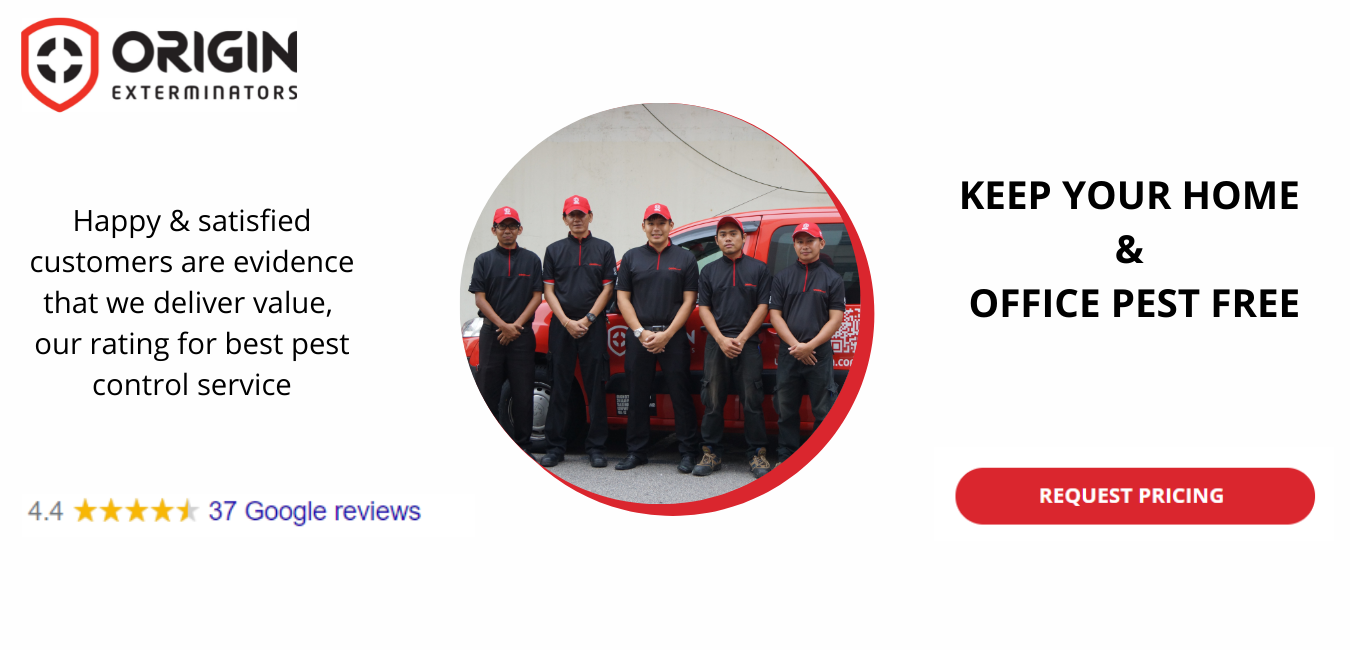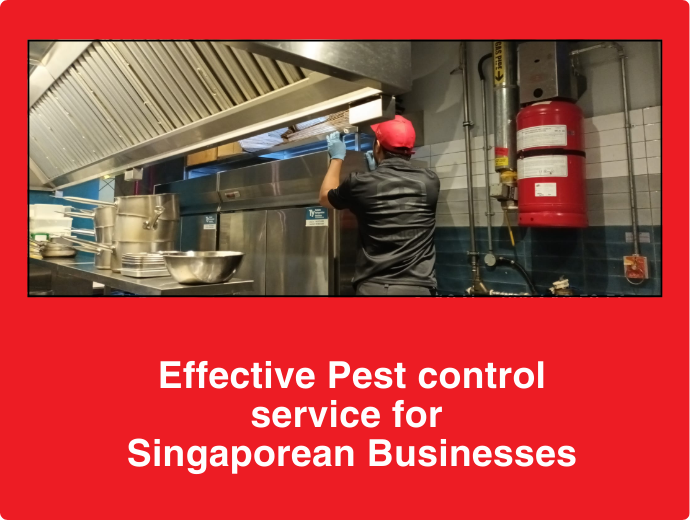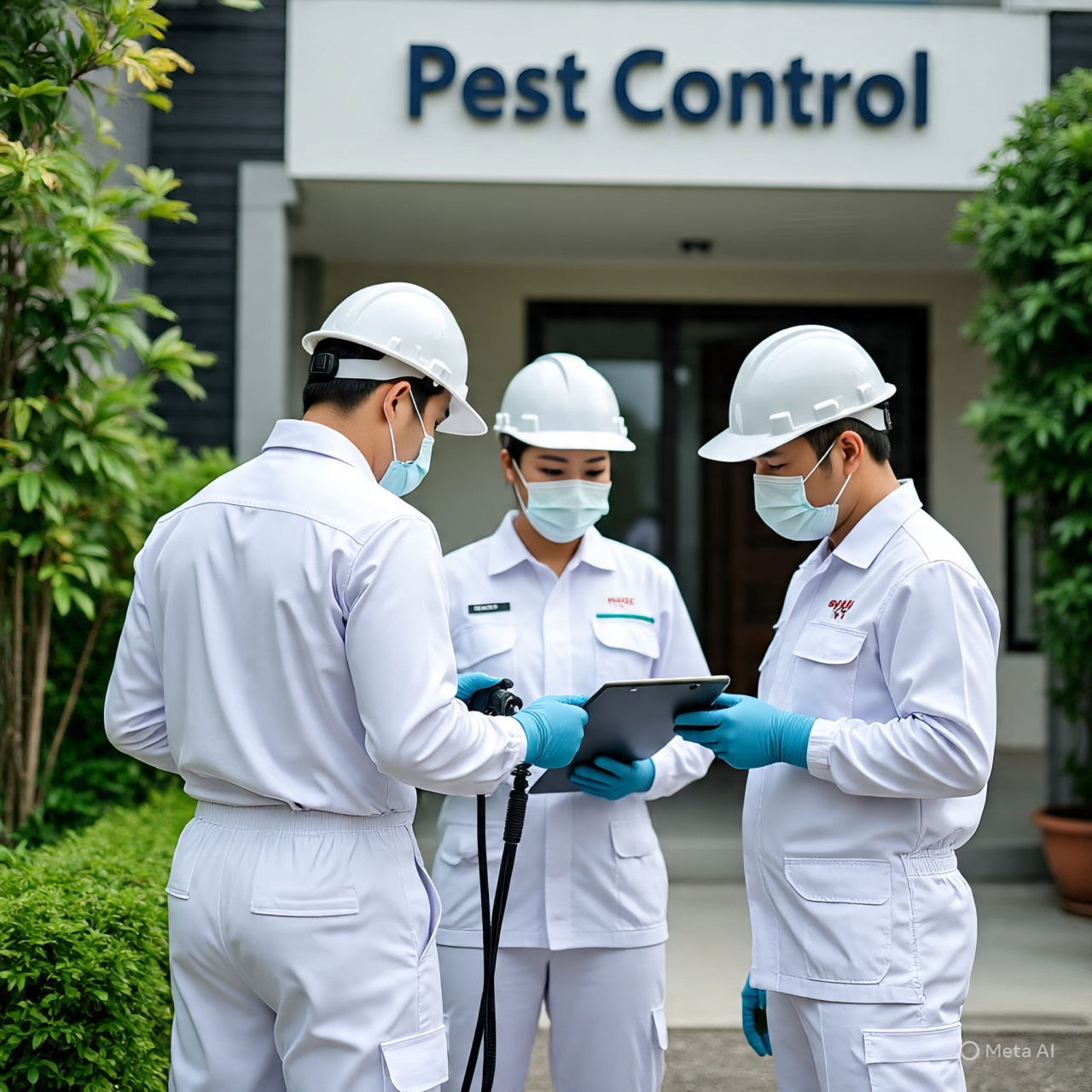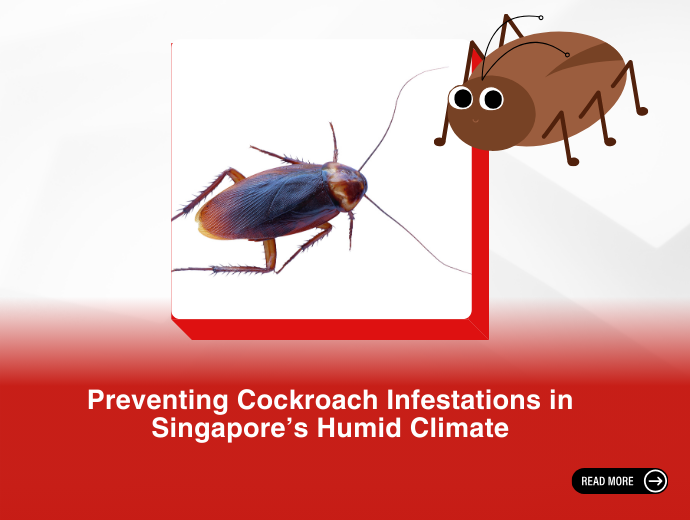There is no denying that pest infestations hugely impact Singapore’s businesses. They lead to health hazards and cause reputational damage and financial losses. As the city’s urbanisation expands to make space for the growing population, businesses face a unique challenge to keep their property pest-free. It is critical for businesses to indulge in pest control services, ensuring their routine tasks continue complying with health regulations.
Let’s understand through this article the importance of effective pest management, their key considerations while selecting the best pest control company, and some of the industry-specific solutions that businesses can implement.
Why is Pest Control Important for Businesses
For all businesses, irrespective of their industry, it’s crucial to have a pest control strategy in place. They must be prepared for common pests, such as rodents, cockroaches, termites, and mosquitoes. These pose health risks, damage the property, and lead to regulatory penalties. Having a reliable and professional pest control company is the perfect solution.
They will include:
- Regulatory Compliance - Singapore follows strict health and safety regulations, essentially in food handling, hospitality, and healthcare industries. Businesses in these industries must adhere to the rules. Any violation will lead to serious consequences.
- Brand Protection - Imagine a customer spotting a pest roaming on your property. The pest spot will damage the reputation, causing complaints to authorities, negative reviews, and eventually, loss of trust. This will also invite huge fines from the authorities and, if ignored, can eventually lead to the closure of the operations.
- Health & Safety - Even if we ignore the rules and regulations by the authorities, pests can have a profound impact on one’s health. They carry a lot of diseases and allergens. Ignoring pest sightings will risk your employees' and customers’ well-being.
- Cost Saving - As mentioned earlier, authorities will charge huge fines to businesses that have failed to address pest infestations and lack a pest control strategy. For any business, an additional fine is more than a burden. To avoid inviting any penalties from the authorities, businesses must protect their property from damage to reputation, infrastructure, stock and operations.
How to Choose the Right Pest Control Company in Singapore?
Singapore offers a perfect habitat for pests to thrive and populate. With this, there are numerous options available for pest control services. Selecting a reliable and trustworthy pest control company is tedious, and a detailed evaluation of their services, costs, and agreements is needed. While doing so, consider the following factors:
1. Experience in the field of pest control and expertise :
Extensive knowledge and expertise are essential for any reputed pest management provider. They must be able to deal with specific pest issues and understand entirely their habitat in Singapore’s climate. Pick a company with an excellent track record that can provide a customised pest control service to meet your business needs.
2. Licensing & Certification :
Pest control companies should acquire a National Environment Agency (NEA) license. Additionally, they must hire a trained pest control professional with all the required certifications to perform their duties. When picking up the pest control company, ensure these licenses and certifications are in place. It will help you determine the pest control strategy of your business in the best hands.
3. IPM (Integrated Pest Management) Approach :
An effective pest control service is beyond reactive treatments; it is also all about prevention. This is attained by Integrated Pest Management, which focuses on long-term prevention, monitoring, and environmentally responsible pest control solutions.
4. Innovation & Technology :
All the leading pest control companies leverage digital monitoring systems, data analytics, and eco-friendly treatments. By incorporating innovation and technology, pest control companies can enhance efficiency and minimise environmental impact.
5. Bespoke Solutions :
Every business has unique pest control service requirements. Be it a restaurant, warehouse, office, or retail store, a customised pest control management plan is essential while expecting effective results.
Industry-Specific Pest Control Solutions
Every industry differs from others in terms of set-up, operations, and guidelines. Pest control service providers must offer each industry a specific control management plan. Listed below are some of the customised solutions for key businesses in Singapore.
Food & Beverage Industry
Food and Beverage is the most important and watched industry. The slightest negligence can lead to serious violations and health issues for consumers. Its vulnerability arises due to food storage and waste disposal. As food is the primary source, pests like rodents, cockroaches, and flies are a familiar sight. A professional pest control service must ensure compliance with Singapore Food Agency (SFA) regulations through:
- Regular inspections and monitoring
- Safe and approved chemical treatments
- Structural proofing to prevent pest entry
Hospitality Industry
Hotels and resorts must maintain a pristine environment protecting guests and maintaining good ratings. Pests, such as bed bugs and rodents, have the capability to sabotage everything. An experienced pest control company will offer discreet, non-disruptive solutions, which include:
- Heat treatments for bedbugs
- Preventative pest monitoring
- Sanitation recommendations
Office & Commercial Spaces
Having pests in offices and commercial spaces means exposing your workforce to danger. Furthermore, it affects the productivity and morale of your employees. Some common pests that can impact productivity negatively are ants, rodents, and termites. To ensure that nothing hampers productivity, pest management services for the office involve:
- Routine inspections
- Baiting and trapping techniques
- Employee awareness programmes
Warehousing & Logistics
Warehouses and logistics must take extra precautions when it comes to keeping pests at a distance. They can not only damage the products but can travel from one destination to another, further damaging the reputation of the company. To safeguard the reputation of the company, a professional pest control company must be called in for:
- Rodent control using digital monitoring
- Fumigation for stored goods
- Strict hygiene protocols
Healthcare Facilities
Hospitals and healthcare facilities follow one of the stringent pest control management measures. These facilities deal with patients suffering from all kinds of diseases. Any exposure to the pest infestation can be life-threatening. Thus, to prevent any further contamination, they must get in touch with a reputable pest control company, ensuring compliance with health regulations through:
- Non-toxic pest control methods
- Frequent sanitation assessments
- Proactive prevention strategies
The Role of Technology in Modern Pest Control
Technology advancement in the field of pest control offers businesses more effective and sustainable solutions. Modern pest control services incorporate:
- Digital Pest Monitoring: There are small traps and sensors that provide real-time alerts to experts for proactive pest control. This allows businesses to detect and address pest infestation even before it becomes severe and goes out of hand.
- Data-driven Pest Management: There are advanced analytics that help track pest activities, identify their trends, and develop targeted control strategies based on historical data. This ensures a proactive approach rather than reactive treatments.
- Eco-friendly Solutions: Businesses are opting for non-toxic solution to further keep their facilities free from any kind of side effects of pest management. These treatments are heat treatments, biological pest control, and the use of plant-based repellents. These solutions minimise the environmental impact and align the corporate sustainability goals.
- Remote Monitoring & Automation: The technological advancement has helped pest control companies to opt for remote monitoring. It is achieved through IoT-enabled devices that monitor pest activities remotely, reducing the need to constantly be on-site to ensure round-the-clock monitoring.
Long-term Pest Prevention Strategies for Businesses
While short-term prevention strategies will help businesses deal with the issue at hand, long-term prevention is crucially important to ensure that the issue doesn’t resurface. Listed are some of the strategies that businesses can adopt.
- Proper Waste Management: Pests are attracted to food sources. Proper and regular disposal of the waste is important to make sure they don’t appear in your facility looking for food. Make sure that the waste is stored in sealed containers and disposed of frequently to prevent attracting rodents and insects.
- Structural Maintenance: Seal the gaps, fix leaks, and repair damaged walls or floors. These can be the entry to pests into your property. A regular inspection of the facility must be done to identify and rectify any kind of vulnerabilities.
- Employee Training: Educate your staff and employees on cleanliness and pest awareness. Employees must be able to detect early signs of pest infestation and inform the management in due time so that the infestation can be prevented before it explodes.
- Routine Inspections & Professional Monitoring: Pest infestation can be removed, but to ensure that it doesn’t happen again, regular inspection and professional monitoring are required. Partner with a professional pest control company that ensures ongoing monitoring and suggests preventive measures. Regular site inspections, clubbed with digital tracking can help businesses stay ahead of the potential pest infestation.
- Landscaping & External Maintenance: Overgrowing vegetation and standing water allow a perfect habitat for pests to not only get attracted but to multiply as well. Regular landscaping and maintenance are needed to reduce breeding grounds.
- Inventory Management: Warehouses should adhere to the inventory management rules, such as FIFO (first in, first out). This should be done to prevent pest infestation on stagnant stocks.
Conclusion:
It’s a known fact that businesses in Singapore struggle to deal with pest infestation. They suffer huge losses due to it. Engaging a professional pest control service will only help businesses to remain compliant, protect their long-standing reputation, and ensure a safe and pest-free working environment for their employees and customers. It can only be achieved by opting for a reliable and trustworthy pest control company that can implement proactive pest control strategies. These strategies should be aimed to achieve a long-term pest-free environment. Investing in effective pest management is not only a regulatory requirement but also a strategic decision that contributes to the overall business success.





.png)